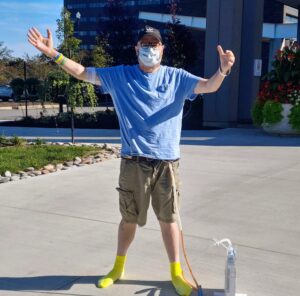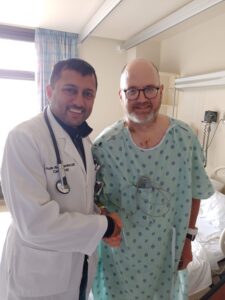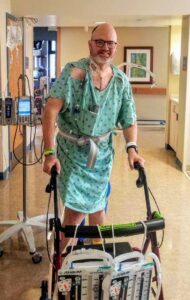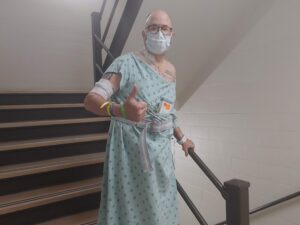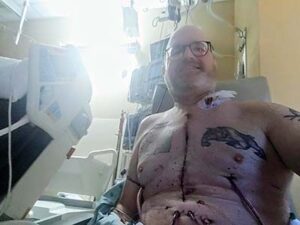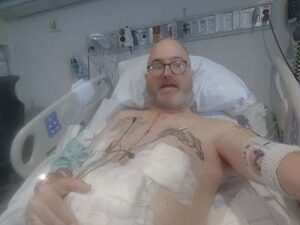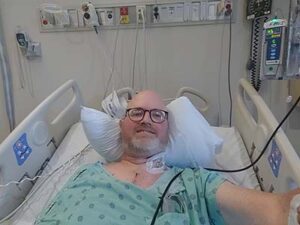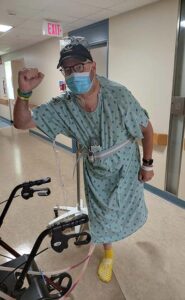I received my heart transplant on August 30th 2019 at Saint Vincent in Indianapolis, Indiana. My blood type is O+ meaning I’m a universal donor but I can only take a type O+ heart back. I was fortunate to be at one of three hospitals that were accepting high risk hearts meaning I accepted a heart that had a history of hepatitis C. It is easily cured,

There’s an organization called UNOS – The United Network for Organ Sharing. They designate organs to those in need based on a set of criteria. When I was first listed for transplant I was listed at status 4 which is stable with an lvad. In July of 2019 I had a right heart cath, and they found pressures they didn’t like in my heart someone bumped up the status 2. 45 days later I got the call at 8:30 in the morning as I was getting ready for work that they found a heart for me. They tell you that you have a certain amount of time to make it to the hospital, which is usually just a couple of hours. If you are lucky enough to get a call, it’s for what they call a ‘preliminary’ match, which means it’s not certain. They are still going back and forth between the doctors and the hospital that the organ is harvested from. Many tests have to be performed and it can be called off up until the time you’re actually in the operating room. That is called a dry run. When they found the match for me and what’s in the hospital it’s a huge game of hurry up and wait, hurry up and wait, hurry up and wait because of all the testing that has to go on.
My surgery lasted a little over 8 hours. Then, roughly 16 hours after the surgery, they woke me up to eat some jello. They try to keep you moving as much as they can. I was sitting up to eat and playing games pretty much the next day – and then the day after that I was walking daily until the end of my stay. . On the 6th day I was going up and down stairs by myself. At the two-week mark, I was walking a mile by myself outside. I was discharged from the hospital on September 18th. My stay was a little longer than many because I had drainage issues.
One thing you need to know is diabetes in transplant patients is common. Tacrolimus and other similar medications are known for their “diabetic causing” effects, due to their destructive nature on the islet cells and their ability to cause insulin resistance.
The Doctors that kept me alive on my journey
Special thanks to the entire staff of 7 South at Christ Hospital
I am 5 years out and below is a list of my daily meds. Feel free to contact me if you have any questions. Explore the site and check out all the pages, including the STORE, where I have some cool stuff,

